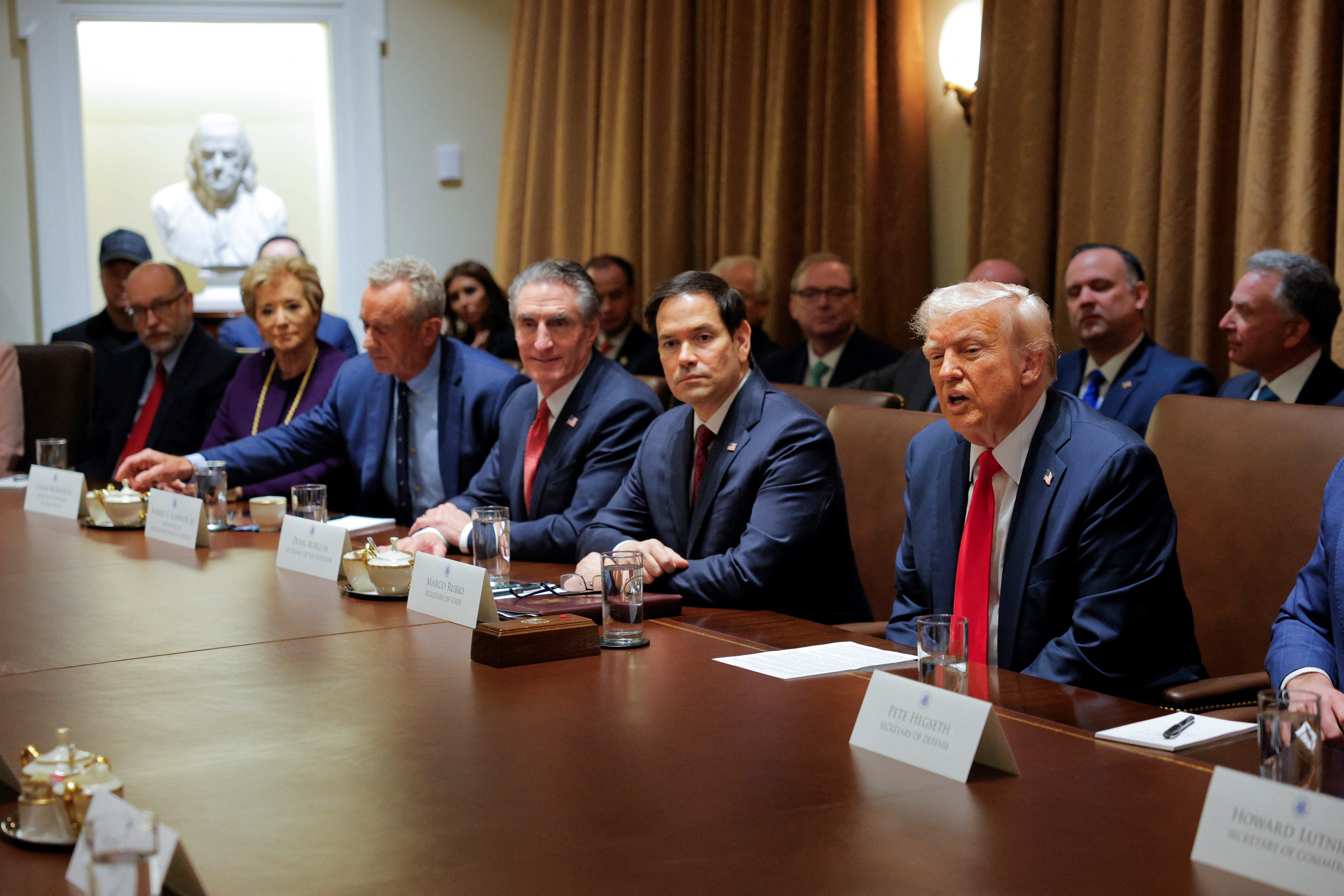Donald Trump hosted the first Cabinet meeting of his second administration on Wednesday. Here’s what went down.
Ukraine. Trump said Ukrainian President Volodymyr Zelensky was expected to sign an agreement in Washington on sharing its mineral wealth, and that it should look to Europe for security guarantees – not the US.
Elon Musk. The “special government employee” received a round of applause as Trump insisted to Cabinet members and reporters present that “everybody’s on board” with Musk’s efforts to shrink the size of the federal government to lower the country’s deficit. While he sat off to the side of the room, Musk’s presence was a show of unity after his email requesting federal employees send the Department of Government Efficiency a list of “five things” they did last week – and threatening them with job loss for noncompliance – spread confusion throughout Washington this week and led to pushback from some government departments.
Musk and Trump reinforced the email, saying it was intended to see “if you have a pulse and two neurons and you can reply to an email,” and said they were convinced some of the federal employees had not replied because they were dead but still being paid.
Golden ticket for citizenship. Trump outlined his plan to sell $5 million “gold cards” to wealthy foreigners seeking US citizenship. He presented this initiative as a significant measure to address the federal deficit, saying “people that can pay $5 million, they’re going to create jobs.”
More For You
Mastercard Economic Institute's Outlook 2026 explores the forces redefining global business. Tariffs, technology, and transformation define an adaptive economy for the year ahead. Expect moderate growth amid easing inflation, evolving fiscal policies, and rapid AI adoption, driving productivity. Digital transformation for SMEs and shifts in trade and consumer behavior will shape strategies worldwide. Stay ahead with insights to help navigate complexity and seize emerging opportunities. Learn more here.
Most Popular
Think you know what's going on around the world? Here's your chance to prove it.
Less than one day after US President Donald Trump declared a military blockade of sanctioned oil tankers from Venezuela, he addressed the nation during a rare primetime speech – but didn’t talk about Venezuela.
Indian Prime Minister Narendra Modi isn’t necessarily known as the greatest friend of Muslim people, yet his own government is now seeking to build bridges with Afghanistan’s Islamist leaders, the Taliban.
